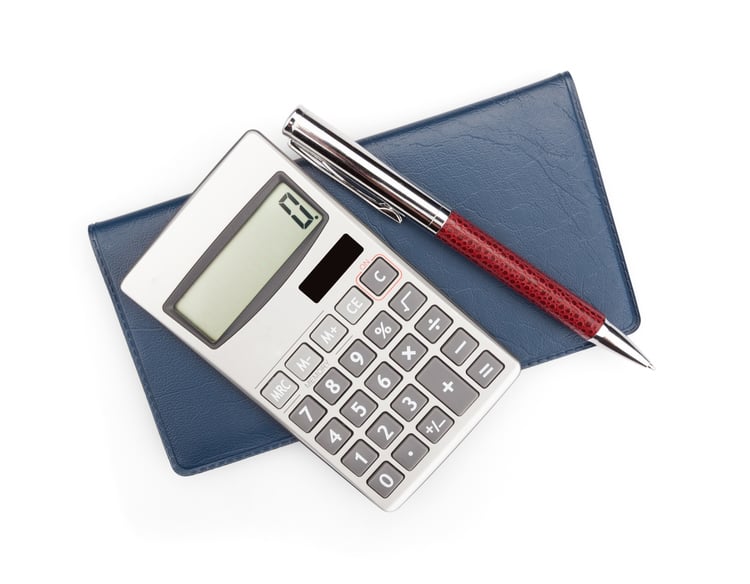Discord With Banks Linked to Consumers’ Shaky Financial Habit’s

- 89% of people who never overdraft their accounts say that they rarely or never have disagreements with their banks.
- 86% of people who overdraft their accounts more than 12 times a year say they have multiple issues with their banks over the course of a year.
- 72% of people who update their financial records at least monthly rarely have disputes with their banks.
Do you find yourself at odds with your bank on a regular basis? If so, a new poll suggests that you might be at least partly to blame.
On behalf of MoneyRates, Op4G polled 2,000 American adults on their banking habits and their attitudes toward their banks. The poll found that the customers who are most likely to have conflicts with their banks — in terms of regular disputes or frequent switching from one institution to another — are frequently guilty of practicing sloppy banking habits, including rarely reviewing their banking records or frequently overdrawing their accounts.
In other words, if you are chronically unhappy with one bank after another, you may not be looking to make another bank change. Instead, you may wish to examine your banking habits.
Do you hate banks, or do you have bad banking habits?
Here are some key observations on the MoneyRates survey results:
- Most consumers know how to avoid overdraft fees. Overdraft fees have been rising over the past several years and are in the neighborhood of $30 per occurrence today, according to MoneyRates’s research. As a result, even a few overdrafts per year can take a large bite out of your checking account balance. The good news is that most customers have gotten the message: The poll found that two-thirds of respondents never overdraft their accounts or bounce a check. However, there is a small minority for whom this is a chronic problem: Just over 15 percent of poll respondents report overdrawing their accounts six or more times a year, including 6 percent who do it more than 12 times a year. At $30 a pop, this last group is blowing at least $360 a year on unnecessary fees.
- Bad habits beget bad habits. What separates people who do not overdraft their accounts from those who do so regularly? Good record-keeping habits appear to be a key to avoiding overdrafts. Eighty-five percent of those who never overdraft their accounts balance their accounts or monitor their budgets on at least a monthly basis. Among people who have 12 or more overdrafts per year, this number drops to 54 percent. That means that nearly half of these chronic overdrafters rarely or never balance their accounts or only do so when things go wrong. If you do not keep your records up to date, mistakes like overdrafts are bound to occur.
- Mistakes lead to conflict. Overdrafts are not only expensive, but these mistakes seem to precipitate disputes between customers and their banks. Eighty-nine percent of people who never overdraft their accounts say that they rarely or never have disagreements with their banks. On the other hand, 86 percent of people who overdraft their accounts more than 12 times a year say they have multiple beefs with their banks over the course of a year. An incredible one-third of the respondents in this group say they have disagreements with their banks on a weekly basis.
- It’s not your bank — it’s you. Among people who say they never overdraft their accounts, only 2 percent have left more than two banks in the past because of disagreements or bad service. In contrast, among people who overdraft their accounts more than 12 times a year, 66 percent have had three or more messy splits from their banks. If you keep having the same type of negative experience with a variety of institutions, you should start to examine whether the problem might be with your banking habits rather than with the banks.
- Four out of five consumers stay on top of their finances. If diligent record-keeping leads to less contentious banking relationships, the good news is that most consumers are up to the task. Eighty-one percent of respondents balance their accounts or monitor their budgets at least once a month.
- Good habits are less work in the long run. Frequent account monitoring may take some effort, but it will probably save you time in the end. Seventy-two percent of people who update their financial records at least monthly say they rarely have disputes with their banks. For less frequent record-keepers, this number drops to 14 percent. Translation: Good habits can save you a lot of hassles.
- Familiarity breeds … contentment. Keeping close tabs on your financial records tends to result in longer banking relationships. Most people who update their financial records at least monthly say they have never left a bank over disagreements or dissatisfaction. In contrast, people who fail to update their financial records at least monthly are roughly twice as likely (21 percent versus 11 percent) as more regular record keepers to have had three or more contentious splits from their banks.
The reason you should develop good financial habits, such as keeping up with your bank records and not overdrawing your account, is not for the benefit of your bank. After all, they are perfectly happy to charge you those hefty overdraft fees. For your benefit, though, a little more diligence can lead to more peaceful — and less expensive — banking relationships.
You might also like: